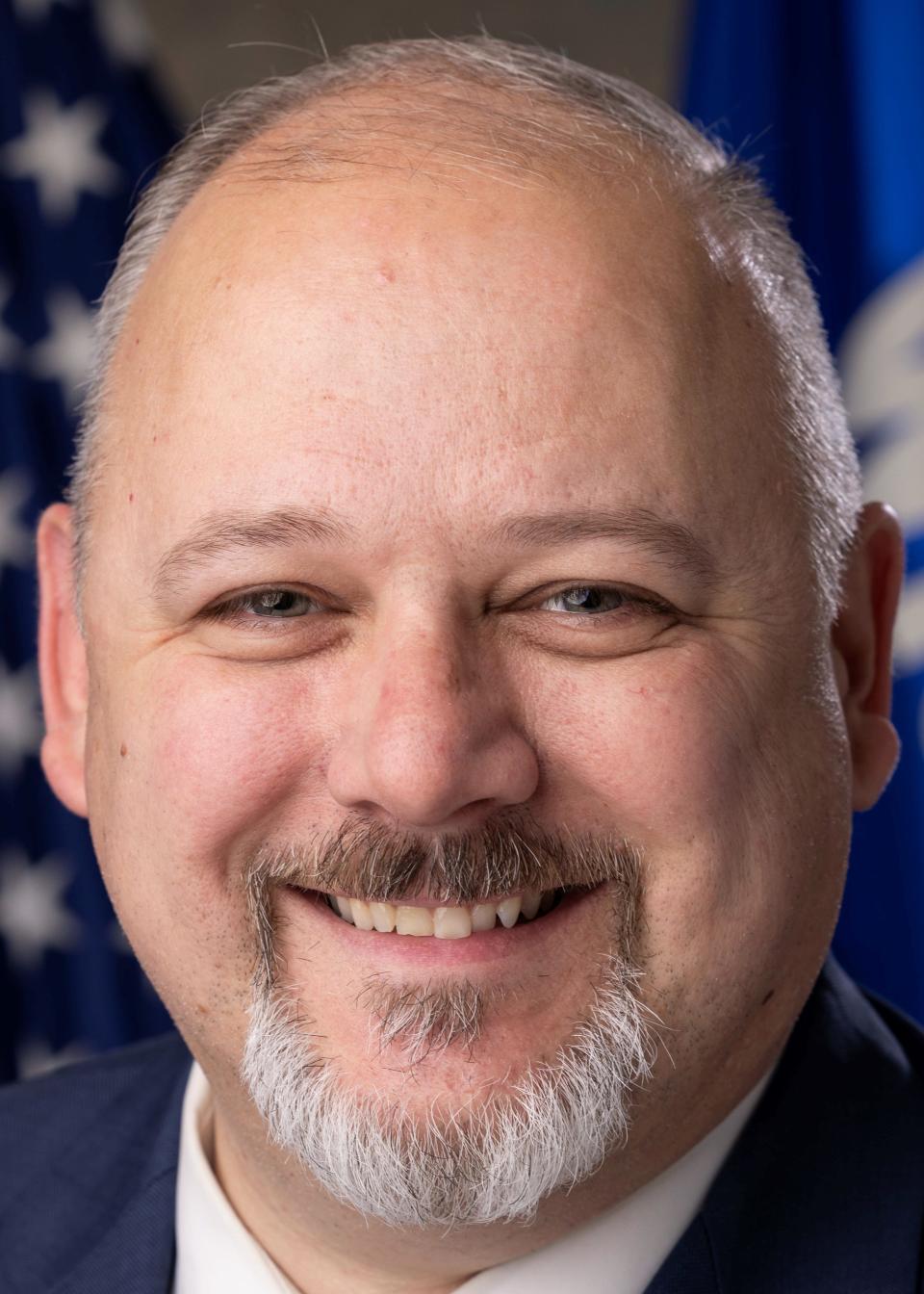Wisconsin youths with serious mental illness are shipped out of state. Bill would keep them here.

How does a 12-year-old girl in western Wisconsin experiencing psychosis end up in Arizona? She just has to live in Wisconsin.
Let's back up.
As a part-time police officer, state Sen. Jesse James, R-Altoona, responded to a distressing call: a pre-teen was wielding a knife and chasing other children around the house. The girl was homicidal, a rare but powerful symptom of psychosis.
James transported her to a local hospital where she languished for 19 hours before another officer cuffed her and took her to Winnebago Mental Health Institute, one of the few facilities obligated to accept patients with severe mental illness. The girl spent several hundred days there.
Several months later, James, himself a father, decided to check in. "That's when I ultimately found out she got shipped to Arizona," James said. "That completely blew my mind. I was like: Really?"
To his dismay, he learned more about the absence of treatment options in his state for young people living with serious mental illness. According to the Wisconsin Department of Children and Families, 125 youths in 2023 who required residential treatment for behavioral health concerns lived outside the home — way outside the home. A few were at Winnebago, but the majority of those youths — 73 — were shipped out of state.

That's because Wisconsin has no psychiatric residential treatment facilities, which are stand-alone, long-term inpatient facilities that comprehensively treat patients under the age of 21 with diagnosed mental illness, substance use disorder, post-traumatic stress disorder, or severe emotional disturbance. Further, the state Department of Health Services doesn't have the ability to create or certify treatment centers of that kind.
Finding a safe place to transport these young people to is an exhausting process for everyone involved, said Tim Easker, director of Chippewa County Department of Human Services. Over the last couple years, Chippewa County has sent five of its kids out of state.
"As we're looking at placements, we'll have workers calling 40, 50 facilities in state and out of state — and we get resounding no's," Easker said. "Either there's no capacity or the kids aren't at the level where they can take them."
That Altoona 12-year-old girl's circumstances created in James a "passion area" and, come January 2025, he's bringing forth a bill that he hopes will take priority next session.
The bill would authorize the DHS to certify psychiatric residential treatment facilities, something Easker said has been a desire among county officials for years.
"If we really have to choose, why don't we ship adults out of state and let our children remain in state where they can be at least visited by friends and family," James said. "Taking children away from loved ones, I don't think that's right."
Where do the children go?
Easker said the official number of out-of-state placements from DHS sounded low. In Chippewa County alone, Easker said they've run anywhere from three to five children out of state on a routine basis over the last five years.
It's a small county, with a little more than 66,000 residents. Throw in the numbers coming out of Milwaukee, Dane and Brown counties and Easker said he'd be shocked if the 73-count was accurate.
"We've seen their data on emergency detentions. It's extremely low — just because it's not an uber accurate system," Easker said. "When Sen. James or his predecessor Sen. Kathy Bernier would say 'DHS is telling us there are this many (emergency detentions),' I would laugh and say, 'I wish our numbers were that low.'"
Low or not, the official number of children being sent out of state has fluctuated, according to DHS' legislative director HJ Waukau. In 2016, the number of children sent out of state was 44; four years later, the number of children sent out of state was 120; last year, it was back down a bit.
When DHS staff look for placements, Wisconsin only offers temporary acute treatment care. Depending on the level of acuity, young people may be sent to facilities in Green Bay, Appleton, Madison, Milwaukee, La Crosse or Essentia Health in Duluth, Minnesota. As a last resort, they may be sent to Winnebago in Oshkosh, which cannot turn them down.
In western Wisconsin, there is added pressure because Prevea Health and Hospital Sisters Health System recently announced the closure of Sacred Heart Hospital in Eau Claire, St. Joseph’s Hospital in Chippewa Falls and all Prevea locations across the Chippewa Valley.
It can take up to six months, according to Easker, to find long-term treatment in another state.
Neighboring states — Indiana, Iowa, Minnesota, Michigan, Missouri, Nebraska and Ohio — have already established either psychiatric residential facilities or the framework for such facilities.
But that doesn't mean those facilities will have available spots for Wisconsin patients. Easker has personally transported kids to Nashville, Tennessee, Utah, and beyond. Other staff members have sent kids to Florida and Idaho.
"We're flying these kids into these geographically foreign-looking areas with mountains and deserts," Easker said. "When I took a kid to Utah and we were flying over Salt Lake City, he was looking at me with his mouth open like, 'Where the heck are we?'"
Who is being sent away?
In a 2022 study conducted by Wisconsin Association of Family & Children's Agencies, 100% of the children at risk of being sent out of state had a mental health condition, disability, and/or medical need that necessitated a higher level of care.
The most at-risk group, according to Easker, is special needs adopted children, many of whom don't develop concerning behavioral problems until their teenage years. Many of these children are the victims of abuse, fetal-alcohol syndrome and the unique traumas that come with being removed from their biological homes. Others have developmental disabilities that don't present behavioral elements until puberty.
"These kids come from some pretty tough backgrounds," Easker said.
What are the benefits of psychiatric residential treatment facilities?
Psychiatric residential treatment facilities provide secure treatment for all children and long-term care that supports stabilization and mental health treatment, according to Wisconsin Association of Family & Children's Agencies.
But being so far removed geographically from family is a real problem, not only due to the trauma it adds to a child's everyday life, but the ability for family to receive education and tools to better their households and break cycles they might not even realize are harmful.
"Working with the parents on things like: How do you react to these behaviors? How can you change those dynamics?," Easker said. "I think that's what's really so important. And that's the benefit of having those kids in placement in-state."
How much does it cost to transport and treat youths out of state?
It can cost taxpayers thousands of dollars a day for out-state treatment of the youths, anywhere from $15,000 to $30,000 per month. That's not including the cost for families to visit children sent out of state, which may be part of a treatment plan or ordered by a county DHS office for the health of the child.
That also doesn't account for how long, in the meantime, kids are waiting at Winnebago before they can be placed at a more appropriate facility to meet their needs, Easker said. Per child per day, it costs DHS $1,500 for them to be at Winnebago, which translates to upwards of $40,000 per month. With Medicaid reimbursements, DHS ends up paying 40% of every child's time at Winnebago.
Then, if the child has to be flown out of state, it requires someone from DHS' staff to board a plane and personally transport them.
What's next?
Gov. Tony Evers already set aside $1.79 million in the 2023-25 biennial budget for a facility, should the bill pass next session.
James anticipates his bill will pass and be signed by Evers early next year. It has strong bipartisan support and support from mental health stakeholders across the state.
"As I said, this is a passion area. Staff is going to prepare us for next January so that we have a clear, transparent, accurate picture that I can use to sell my colleagues," James said. "That's what we're really going to be working on this next year."
Natalie Eilbert covers mental health issues for USA TODAY NETWORK-Wisconsin. She welcomes story tips and feedback. You can reach her at neilbert@gannett.com or view her Twitter profile at @natalie_eilbert. If you or someone you know is dealing with suicidal thoughts, call the National Suicide Prevention Lifeline at 988 or text "Hopeline" to the National Crisis Text Line at 741-741.
This article originally appeared on Green Bay Press-Gazette: Bill would keep seriously mentally ill youths in Wisconsin for care

